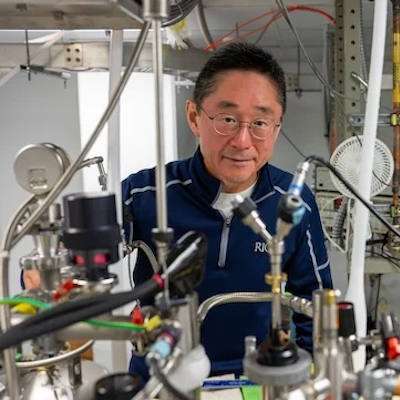New molecule boosts computing power
May. 05, 2025.
2 mins. read.
2 Interactions
Scientists discover highly conductive organic molecule to create smaller, more efficient, and powerful computing devices.
Computers have shrunk since the 1980s. They store and process huge amounts of data. Silicon chips, tiny electronic parts, power these devices. These chips hold transistors, which control electric flow.
However, silicon chips can only get so small. Transistors double on chips every two years. This trend slows as silicon reaches its size limit. Scientists are studying molecular electronics, using tiny molecules for chip parts. Molecules could replace silicon and metal in chips. This approach makes smaller, better devices. However, finding the right molecule is hard. Researchers at University of Miami, Georgia Institute of Technology, and University of Rochester, found a solution. They discovered a highly conductive organic molecule, made of carbon, sulfur, and nitrogen.
Molecule enables efficient electron flow
This molecule conducts electricity better than any organic material. Published in Journal of the American Chemical Society, the finding supports smaller, powerful devices. Unlike other molecules, it allows electrons to move without energy loss. This happens over long distances, up to tens of nanometers.
Testing took over two years. The molecule stays stable in normal conditions. It offers the highest electrical conductance, how well electricity flows. This could make computing devices smaller and energy-efficient. Current molecules lose conductance as they grow. This molecule acts like a wire, moving data fast. Electrons travel like with no energy loss. This efficiency is the best in any material.
The molecule could enable quantum computing, using qubits. The researchers used a scanning tunneling microscope to study it. A technique called STM break-junction measured the molecule’s conductance. The molecule is robust and air-stable, fitting with existing chip parts. It’s cheap to make in a lab. This discovery could create powerful, cost-effective devices with new functions.
Not only can the molecule downsize future electronic devices, “but its structure could also enable functions that were not even possible with silicon-based materials,” says researcher Kun Wang in a press release. “In the future, one could use this molecular system as a qubit, which is a fundamental unit for quantum computing.”
Let us know your thoughts! Sign up for a Mindplex account now, join our Telegram, or follow us on Twitter.


.png)

.png)


.png)




0 Comments
0 thoughts on “New molecule boosts computing power”